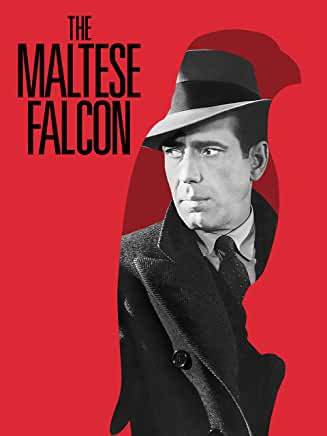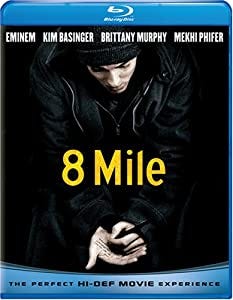Image by L.E. Wilson from RedBubble based on work by Gerd Altmann on Pixabay
All actions have consequences. There are no free rides. Nothing, nothing at all, is free from ramifications. Because of this, doesn’t if follow that some deliberate thoughtful meditation ought precede any action you take? But what typically keeps you from carefully considering your choices? What pushes you to make hasty decisions, unconsidered and unexplored? Could it be impatience?
One of the wonders of life is that we can learn from our own past experiences as well as from others’. For example, if you notice a pattern where a good number of people experience a negative effect from an action they took, then it is pretty reasonable to assume that you won’t escape their same sad fate.
In other words, it is wise to try to not diminish or ignore potential negative outcomes simply because you don’t think anything bad will happen to you. If there is a risk, if you are doing something unusual or dangerous, then pause—seriously take a long pause—to consider if the risk is worth taking and how you might feel if something bad happens, or if making a different choice might significantly lessen the risk and still give you most of what you want. Regret is a terrible torment. Don’t set yourself up to experience the pain of remorse.
On the other hand, there is no sense in beating yourself up for making a mistake, either! We can’t be held up to some perfect standard where we never make the wrong choice. We’re always learning in life, so we must make room for failure. Nevertheless, we can be guided by cautionary tales and take to heart the fact that, even in cases where things happen to us seemingly beyond our control, ALL actions that we take will have consequences. We just have to remember this when making decisions.
Hence, there is a clear Life Lesson that can be derived from this observation, this unavoidable fact of nature where cause and effect rules, and that is that the real enemy of thoughtful deliberation and rational decision-making is impatience.
To wit: Become a patient person, and you’ll make better decisions.
Here are a few movies demonstrating the power and the benefits of patience:
The Maltese Falcon (1941)
The Maltese Falcon (1941) is a film noir drama written and directed by John Huston, based on the book by Samuel Dashiell Hammett, about Sam Spade (Humphrey Bogart), a San Francisco private detective whose business partner is murdered soon after he takes the case of Ruth Wonderly (Mary Astor), a woman who is not who she claims to be.
Life Lesson: “Do your duty, and a little more, and the future will take care of itself.”
— Andrew Carnegie🍿Movie Scene Link (movie quote)
Private detective Sam Spade uses patience to find his business partner’s murderer. He methodically sets out to find all the missing pieces, expertly gathers them, and then waits until everything is set to make his move. Being patient is what allows him to ignore distractions and temptations that would have otherwise sidelined him. Imagine how different things might have turned out had jumped at the first chance he got only to find that he didn’t have strong enough evidence. Patience gives you focus.
The Karate Kid (1984)
The Karate Kid (1984) is a drama directed by John G. Avildsen about Daniel (Ralph Macchio), a newcomer to a high school where he is bullied, which prompts him to seek the teachings of Mr. Miyagi (Pat Morita), an elderly Japanese martial arts master.
Life Lesson: Learn to defend yourself in a way that should gain the respect of your opponents.
🍿Movie Scene Link (movie quote)
Teenage Daniel is taught by his Karate teacher, Mr. Miyagi, that mastering new skills requires patience and dedication. One of the most impactful scenes in this movie is when the teacher reveals that all the seemingly menial tasks he assigned, like painting a fence, sanding the floor, washing and waxing cars, were all meant to train the mind and body for Karate. Imagine how useless these lessons would have been had Daniel been more impatient and given up on his training. Patience allows learning.
8 Mile (2002)
8 Mile (2002) is a dark drama directed by Curtis Hanson about Jimmy ‘B-Rabbit’ Smith (Eminem), a Detroit factory worker struggling to become a professional rapper while living in a trailer with his alcoholic mother Stephanie (Kim Basinger) and baby sister Lily (Chloe Greenfield).
Life Lesson: Own the moment; seize the opportunity.
Don’t wait for someone to rescue you.🍿Movie Scene Link (movie quote)
Rapper Jimmy “B-Rabbit” Smith is ready when opportunity presents itself because for years he patiently worked on his craft to prepare himself. Throughout the movie we see him working on the lyrics of his music, writing bits down on scraps of paper while on the bus heading to work, or at home in a corner by dim light. Imagine an alternate reality where he gives up and doesn’t develop his craft because of an entitled belief that he should have already achieved success. Patience gives you room to grow.
Moneyball (2011)
Moneyball (2011) is a drama directed by Bennett Miller, based on the book by Michael Lewis, about Billy Beane (Brad Pitt), the Oakland Athletics’ general manager who used statistical analysis to assemble a competitive baseball team on a limited budget.
Life Lesson: “All truth passes through three stages. First, it is ridiculed. Second, it is violently opposed. Third, it is accepted as being self-evident.” — Arthur Schopenhauer
🍿Movie Scene Link (movie quote)
Billy Beane very patiently and deliberately sets out to find another way to assemble a competitive baseball team on a limited budget. His patience allows him to accept both that a) failure is part of the learning process, and that b) the investment in time that it takes to run an experiment and test new things is needed. Imagine if he had given up at the first sign of trouble, or given up because testing seemed to take too long. Patience leads to discovery.
To sum up, as a mantra, remember that patience is a virtue.
Patience gives you focus.
Patience allows learning.
Patience gives you room to grow.
Patience leads to discovery.
Since all actions have consequences, patience is needed to train your mind so that it can help you make decisions that result in better outcomes. But don’t beat yourself up if you’re still learning this skill. Above all, please remember to be patient with yourself.
All of this is to simply say that if you are patient, you will make things easier for yourself. But you can still practice patience in how you deal with any negative repercussions from an earlier impulsive decision.
Be well. Be prudent. Use patience to guide you to the better choice.
And remember, everything is going to be fine.
Visit the moviewise catalogue—a searchable database of one sentence movie summaries, movie quotes, and movie wisdom—for movie recommendations.
Also visit the moviewise store. Get a t-shirt, bag, or pillow with your favorite #LifeLesson from a movie. Reply to this or leave a comment below to make a request.












